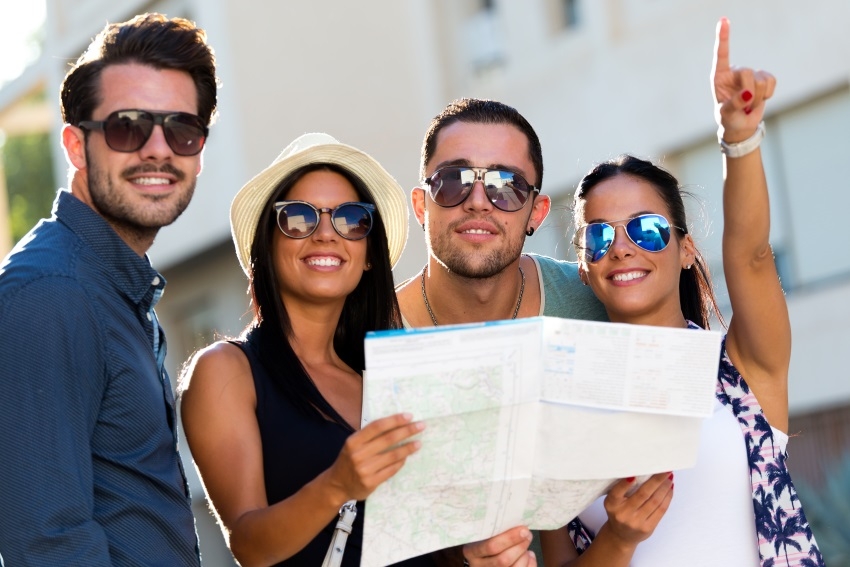Reading comprehension - Pre-intermediate level
As a teacher of English mainly based in the UK, I have met hundreds of international students of all ages and seen many funny situations. Based on these experiences, here are my top tips for a successful stay in the UK.
1. First of all, before you travel buy or borrow a large suitcase or travel bag. You must pack for all types of weather! Even in summer we have some very rainy days and sandals will not be enough! Bring some trainers or shoes to keep your feet dry. There is also likely to be some cold or windy weather when you will need a jumper or sweatshirt. A lightweight raincoat and an umbrella are essential.
2. Remember to bring enough Pounds Sterling (£) for at least the first few days. Try not to have any of the red £50 notes as shop keepers do not like taking them, especially for small items of shopping. After you arrive you can take out money from a cash dispenser (often called an ATM) but not all villages or residential areas have them. Of course, you can change Euros to Pounds at a bank from Monday to Friday (plus Saturday mornings at some large banks). You can also spend Euros in airports, larger railway stations, most McDonalds and some big city stores like Harrods, Selfridges, John Lewis or Marks and Spencer. In addition, you can buy your entrance ticket with Euros at Madame Tussaud's in London but you can't use them for the tour at Buckingham Palace! The Queen likes British Pounds!
3. If you have any medical needs, learn the necessary vocabulary in preparation for a possible visit to the doctor or pharmacist. In Britain, for an appointment with the doctor we go first to the Doctor's Surgery, the Health Centre or in some towns the Out of Hours Drop-In Centre. Don't go straight to the hospital for a non-emergency. Ask your host family, school or hotel reception where to find the nearest doctor (called a GP - General Practitioner). You will need to register as a temporary resident.
However, if there is an accident or other serious medical situation you must telephone 999 and ask for an ambulance. (Don't forget in Britain we ring the same 999 number for ambulance, fire and police services, so they will ask you which one you need.) For medical emergencies you can also go direct to the 'Accident and Emergency Department' of the nearest hospital.
4. If you are 18 years old it is legal to purchase alcoholic drinks in the UK but you need ID (identification) like your passport or photo driving licence to confirm your age. The signs in shops, pubs and restaurants warn you that staff will ask for this if you appear to be under 25 years of age.
5. In the past, ordering a coffee in a cafe was simple - it was black or white, with or without sugar. However, nowadays most coffee shops, offer Italian-sounding items such as cappuccino, latte, americano etc although these may not taste the same as in your country! In many homes your host may offer you an 'instant coffee' made with powdered coffee granules. This flavour is also quite different! Choose a cup of tea if you are unsure!
6. My last tip is very important: In Britain, never refer to a pair of trousers as 'pants'. We know everyone hears this in American films but here in the UK this means 'underwear ' and causes a lot of amusement!
Have a happy holiday and don't forget to buy some souvenirs of your stay.
Remember your pants! - Comprehension questions
1. Why will you need a large bag when you travel to the UK?
2. Is it possible to pay in Euros for your entrance ticket for the Buckingham Palace Tour?
3. What are the three places where you can visit a doctor if your problem is not urgent?
4. What is the number to telephone if there is a serious accident? What are the three services you can contact on this number?
5. In Britain, what age must you be to purchase alcoholic drinks legally?
6. In British English what does the word 'pants' mean?



